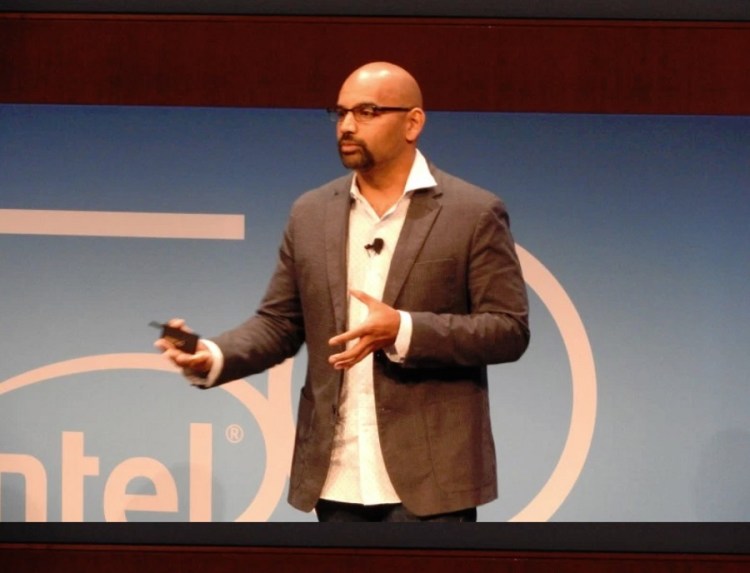Watch all the Transform 2020 sessions on-demand here.
During a wide-ranging discussion at Amazon’s re:MARS conference in Las Vegas, Naveen Rao, corporate vice president and general manager of AI at Intel, spoke about machine learning’s rapid progress and the fields it might transform, in addition to the steps he believes must be taken to ensure it’s not abused.
Rao compared the advent of modern AI approaches with the iPhone. Like the iPhone, he said, machine learning — a technique underlying systems from Amazon’s Alexa to Google Lens — wasn’t the first form of AI, but it was nonetheless “exciting” and “consequential.” He characterizes the coming AI revolution as the single largest transition the human species has ever encountered.
“Few people anticipated the big-picture changes that smartphones would bring. No one foresaw that smartphones could make our work day substantially longer because we’d never get away from email,” he said. “No one predicted we might have to ask family members to look up from their device so we could talk to them. No one thought we’d need to teach kids social skills for face-to-face interactions.”
He added: “The intended consequences of AI — the transformational positive impacts to all of humanity — are so vast and profound that we must find ways to ensure an intended future.”
June 5th: The AI Audit in NYC
Join us next week in NYC to engage with top executive leaders, delving into strategies for auditing AI models to ensure fairness, optimal performance, and ethical compliance across diverse organizations. Secure your attendance for this exclusive invite-only event.
Rao expects that, as opposed to the industrial revolution, which scaled human labor with machines and improved production, and the information revolution, which scaled the volume and accessibility of information, the AI revolution will augment the knowledge and intelligence of human experts. He predicts major outgrowths in countless areas as a result, but specifically human health, agriculture, and space colonization.
Rao believes that AI can make the expertise of top-ranked specialists available to everyone — and that it’s already starting to do so. He pointed to a blindness prevention program in China that’s extending expert ophthalmology care to people in smaller cities. “As we find more ways to securely share clinical and research data, AI will aggregate and analyze it to generate new insights and treatments,” he added.
As for agriculture and space travel, Rao anticipates that AI-based techniques will increase crop yields without genetically modifying foods — things like prescriptive sprays and spray rates based on past harvest yields, tillage depth and speeds based on cameras that calculate clod size and other variables, and planter settings based on live sensor recordings of things like wind speed and soil temperature. And he believes AI will help space travel to “scale.”
“AI will advance the science behind these techniques and scale the expertise of soil scientists so farms across the globe can benefit,” Rao said. “[By] sending AI-based robotics first, we could build an entire colony before a single person lands.”
In order to make this optimistic vision of the future a reality, he prescribes the adoption of three key tenants: thoughtfulness, security, and transparency.
According to Rao, stakeholders must minimize the impact of the unknown, work carefully, experiment repeatedly with accuracy and fairness, engage with diverse viewpoints, and encourage challenging discussions.
Moreover, Rao thinks stakeholders must work to safeguard security of both data and algorithms and protect the consumer’s right to privacy in part with techniques like homomorphic encryption, which enables data owners to gain valuable insights through machine learning without exposing the underlying data. (Toward that end, Intel open-sourced a privacy-preserving tool — HE-Transformer — last year.)
Lastly, Rao says that companies and governments should ensure that data sets are free from bias, and train data scientists and data engineers in ethics; make an effort to avoid black box AI, building on work to define and ensure impartial algorithms; and keep humans involved through continued oversight and employees engaged in conversation.
“It’s impossible to know all the changes a major technology shift will bring, but with something as transformative and powerful as AI, intention is just as important as implementation,” said Rao. “Fortunately, while AI is delivering value already, we’re still in the early days. By starting today and being intentional in our AI initiatives, we have the best chance of creating the AI future we want.”


